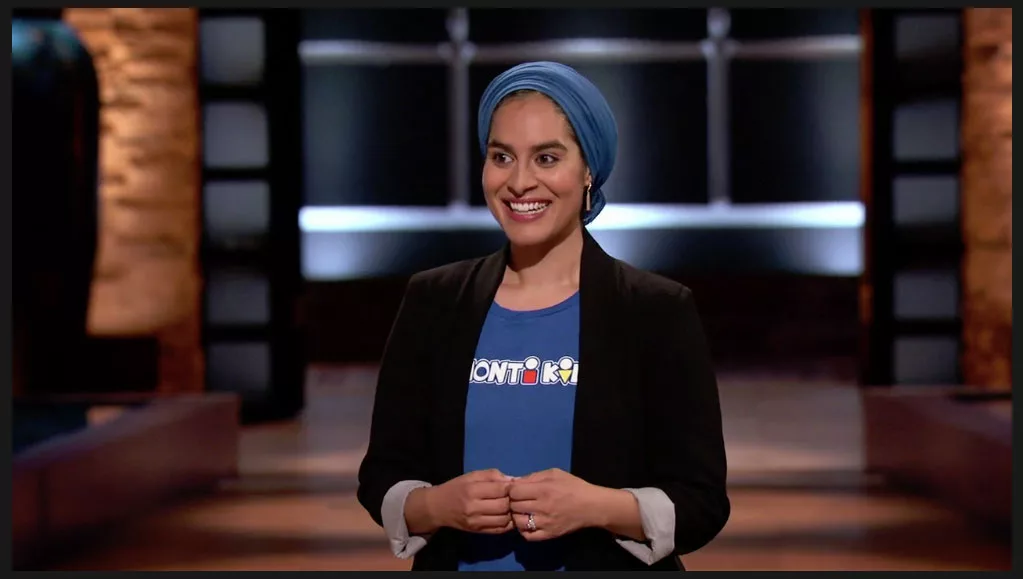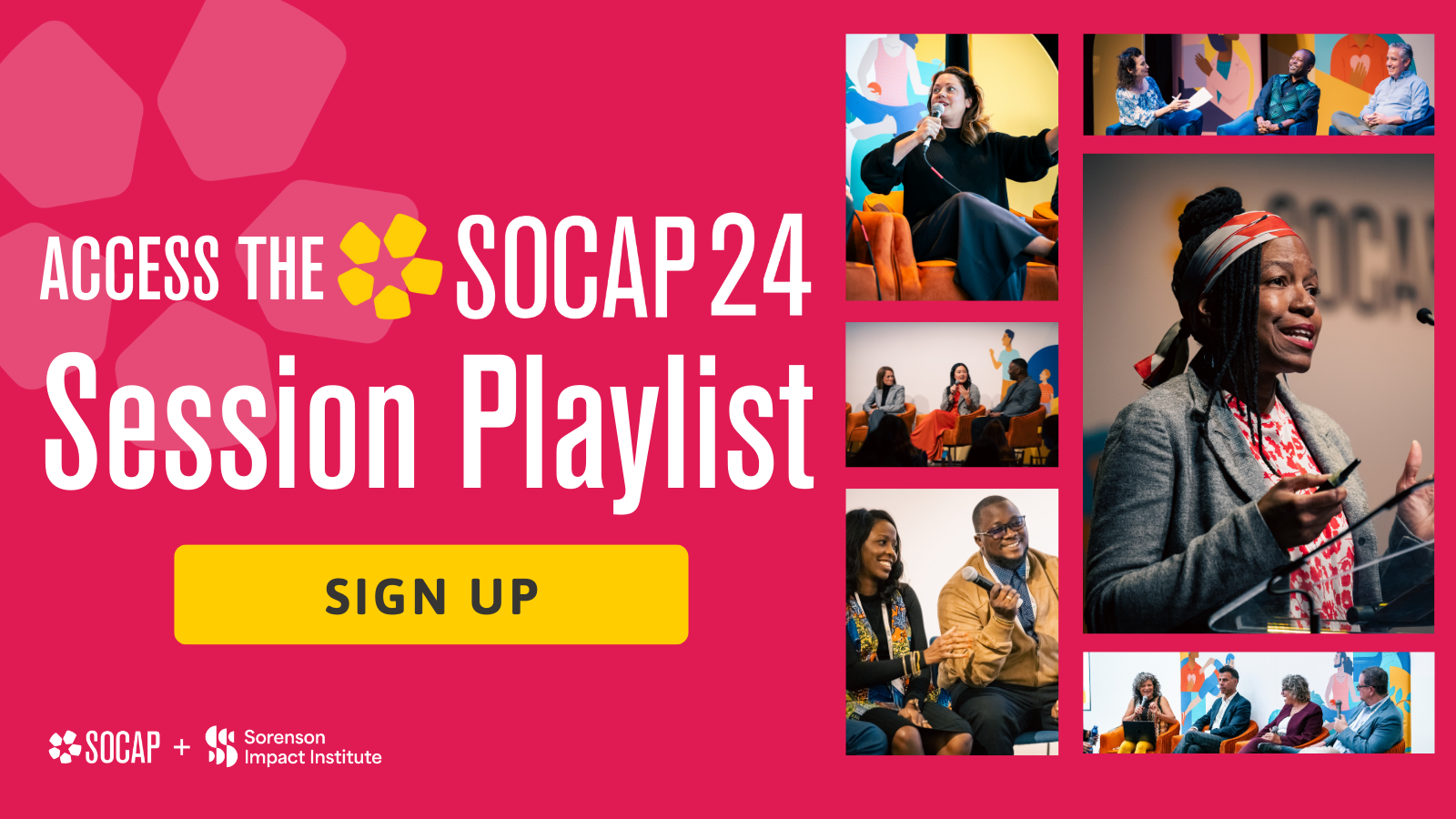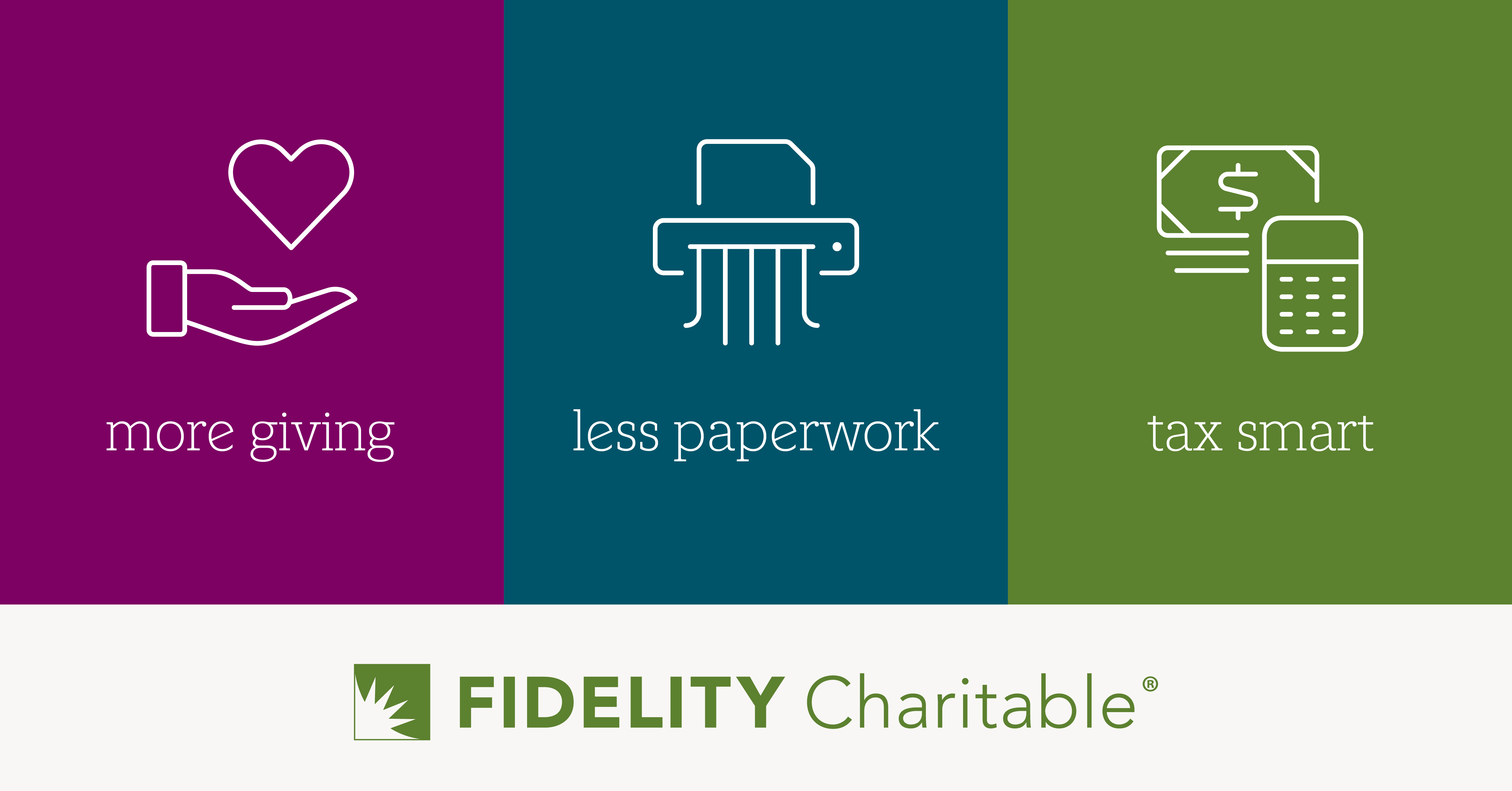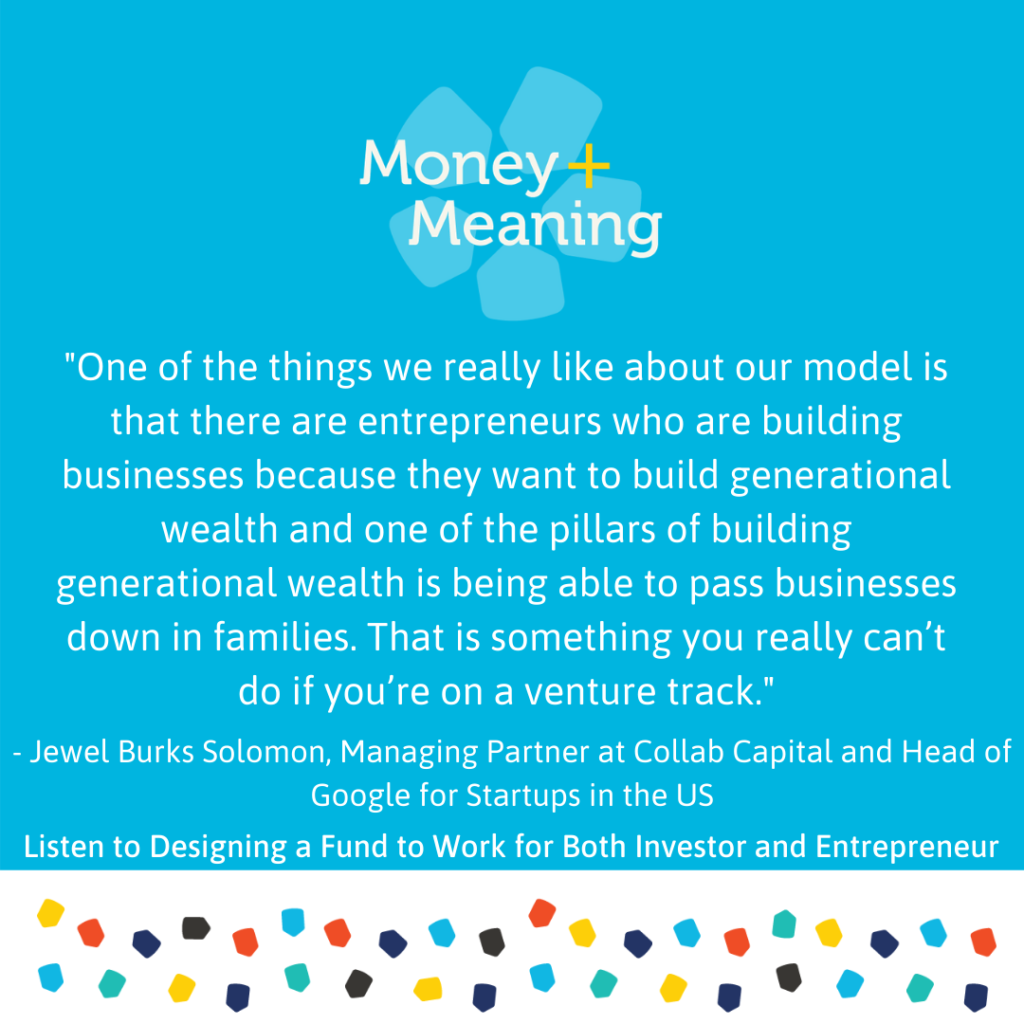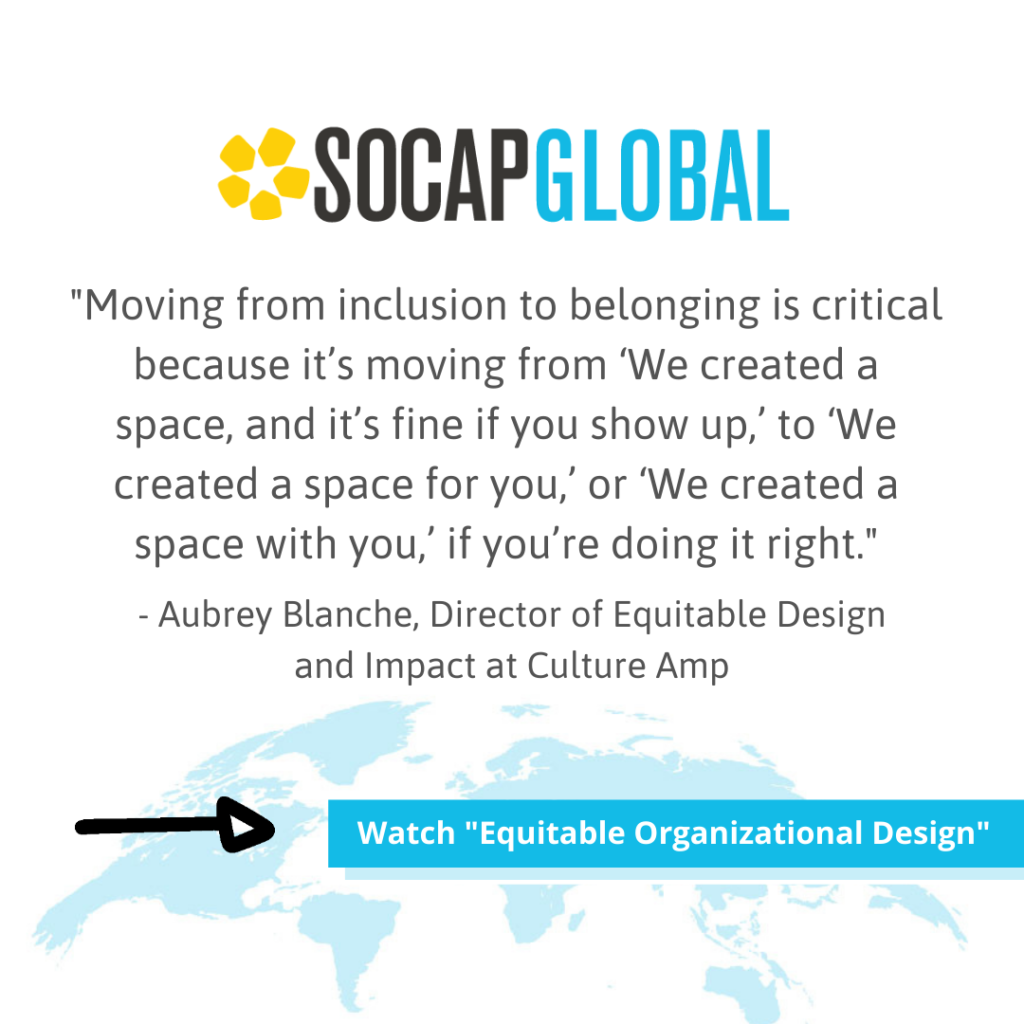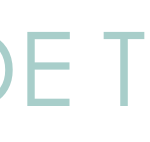Zahra Kassam Was Able to Secure VC Funding and Create a Beneficial Partnership Despite the Dramatized Nature of Shark Tank
When asked about her appearance on an episode of the hit ABC television show Shark Tank, Monti Kids founder and mother of two, Zahra Kassam, says it was “more painful than childbirth.” The Harvard-educated former Montessori teacher’s segment was taped during the summer of 2018, when Kassam’s children were six years old and three months old, and while her introduction of her early-childhood education company started out calm and collected, her pitch for $200,000 for 2.5 percent of the company — an $8 million valuation — quickly raised some eyebrows. The fast-paced conversations that were to follow did a number on Kassam’s cortisol levels (and, honestly, mine too).
For one, the Sharks weren’t shy with their criticisms of Kassam’s high-class credentials and decision to build her business with a venture-capital model. Shark Robert Herjavec’s words per particularly brutal: “You have a great degree, but you missed one school: you didn’t go to the school of hard knocks. … You’re missing discipline!”
“You have a great degree, but you missed one school: you didn’t go to the school of hard knocks.“
— Shark Robert Herjavec
Despite his tough love, Herjavec posed a deal to Kassam: $200,000 for 10 percent of the company, a steep offer considering her valuation, but that wasn’t the only reason she hesitated.
“I went in there hoping for a deal with (Shark) Kevin O’Leary,” Kassam tells Conscious Company. “He has a background in education and children’s products. Before he was a Shark, he built The Learning Company and sold it to Mattel. He has deep experience in the space. He has a portfolio of family brands and has a gap from birth to age three like most (investors) do, so I knew he would get it. Plus, he has a history of being supportive of female founders, and he really saw the value of Monti Kids. He’s a big softy. And I think we had a little bit of a connection.”
Although three of the Sharks bowed out early, Kevin O’Leary also brought a deal to the table. Shark Lori Greiner noted of Kassam’s facial expressions during O’Leary’s proposal: “That huge smile on your face — I’ve watched it the entire time — I saw it just sink.”
Kassam was left to negotiate between O’Leary and Herjavec, which was such a stressful experience that Kassam calls “traumatic — I’m pretty sure I blacked out at one point.” When asked if it was all worth it, though, she responds with a resounding yes.
Despite the heightened intensity and dramatization of Shark Tank, Kassam was able to secure real venture capital funding from the show that helped her business and created a beneficial relationship with one of the Sharks.
In late January, at the 2019 World-Changing Women’s Summit in Scotts Valley, California — just two days after her episode aired on ABC — I sat fireside with Kassam (herself one of Conscious Company’s 2019 World-Changing Woman in Conscious Business) to learn more about her experience swimming with the Sharks. (Check out the full episode on ABC.com; Kassam’s segment begins at the 29:34 mark.)
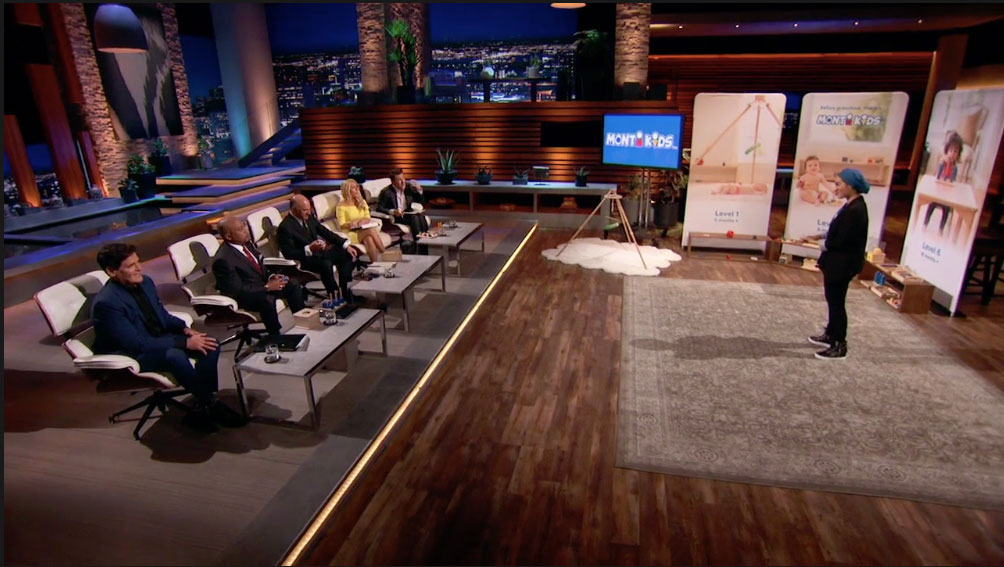
What made you want to go on Shark Tank in the first place?
Zahra Kassam: It was not only for the funding; you can get funding probably in much easier ways. For me Monti Kids is so much more than a business — it’s my purpose in life. Part of that purpose is helping people understand what a high-quality education for babies looks like. It’s not something that’s often talked about. There’s this education gap during the most critical years of a child’s life: 85 percent of the brain is formed by age three. It’s literally the foundation for all future learning and development, and yet children are not yet in school and parents are left without the support. The goal was to bring that concept to the masses and have that conversation, to get people thinking about that education gap and how we can go about addressing it — and then that Monti Kids is a great solution for it. Five million people watch the show. That’s a huge opportunity. But boy was it traumatic.
“If you watch the show you realize that you’re going to go in there and get eviscerated.“
— Zahra Kassam
What are some details that factor into how stressful the experience was?
ZK: First of all, it’s just a long application process and takes a lot of time. I went to an open casting call, waiting for hours at a casino hotel in Palm Springs with my three-month-old baby. I didn’t know that smoking is still allowed in casinos! Luckily the waiting was outside, but there were portions when I was inside shielding my baby from the second-hand smoke, wondering if I was doing the right thing.
After 12 hours of waiting, right before we got in, we found out that 40,000 people apply for each season and less than 100 get selected (that’s less than .03 percent). And I thought, “What a waste of time!” After that point, there is an application process that lasts at least seven months.
And then if you watch the show you realize that you’re going to go in there and get eviscerated. (During my segment) it felt like I was attacked by the Sharks on an emotional level — so you have to prepare for that. I did a guided meditation to try and prepare mentally. I’m super-confident about Monti Kids, and I was fundraising at the time and was prepared from the perspective of giving an investor pitch, but I was scared of the intensity of the questioning. There are often really intense criticisms that aren’t necessarily true — it’s for TV; it’s dramatized.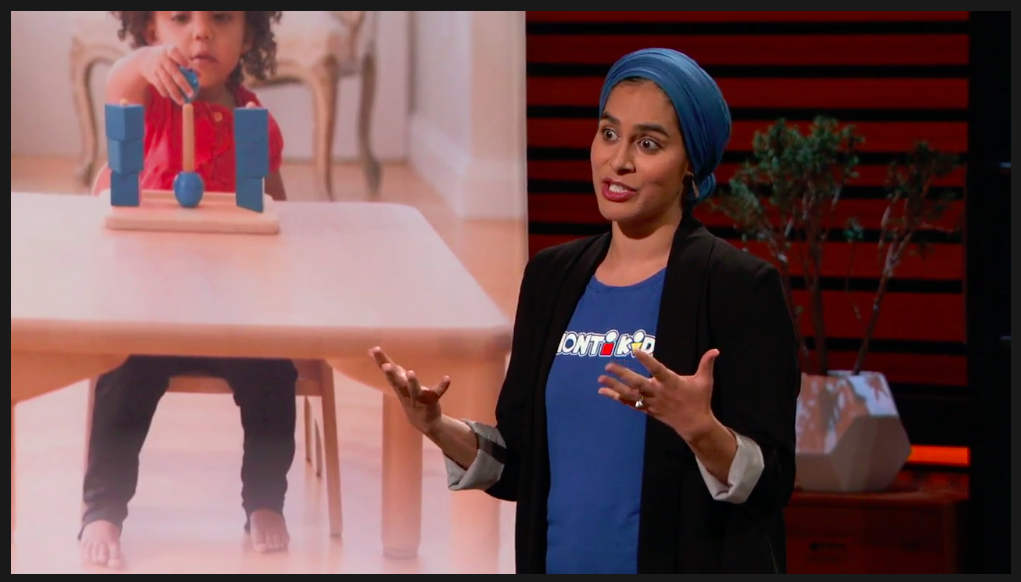
What weren’t you prepared for?
ZK: They latched onto certain things, like the fact that I went to Harvard — at first in a good way. (Shark) Daymond John said something like, “Oh you’re the real deal; you’re a Montesorri teacher, and you have a degree in psychology and education.”
And then Robert started latching onto it in a bad way, like, “You haven’t been to the school of hard knocks.” He was really upset that I’ve raised venture-capital funding and talked about it in a way like, “You’ve lost all this money already,” but we’ve chosen to build our business with a venture-capital model and that’s just how it works: you raise money, you’re not profitable right away, you get to a certain scale and then hopefully you’re wildly profitable. On Shark Tank, sometimes they don’t appreciate that model. There was a lot of criticism. And I went into full fight or flight mode; I blacked out a little bit and don’t remember a lot of what happened.
I got a little thrown off in the tank because of the stress levels, and almost took a deal — and actually said yes and almost closed a deal with Robert. In hindsight if that had worked out, I probably would not have been able to go through it. He wanted 10 percent of the company, which was way too much at a much lower valuation than we’re currently raising, so I’m really glad that things worked out the way they did.
We talk often about the Universe helping us out and things happening for a reason, so despite all the stress and the crazy blackout that I had, it totally worked out. I have a deal with Kevin O’Leary; he’s a fantastic partner.
Have you heard from him since?
ZK: Side note: We taped in the summer of 2018, so it was a big secret to keep! I was not allowed to say that I got a deal.
Right away after the show, I started communicating with Kevin and his team. Some people don’t realize that what’s agreed to on the show isn’t binding, which is reasonable because entrepreneurs at that level of stress — to hold them to what they agreed to would be unreasonable. And the Sharks also have to do their due diligence. There’s a lot of due diligence before you get onto the show because the producers want to make sure the businesses are legitimate during the application process. There was about a six-month due-diligence process afterwards, too. They looked into every detail of our business, which was really intense. I’m proud that we made it through that, and then during that time we also got to negotiate (with Kevin O’Leary) a little bit on the deal.
Can you tell me about the deal?
ZK: I can tell you about the deal that was agreed to on the show. He gave us our ask: $200,000 for 2.5 percent, which is basically part of the seed round we were already raising at the time (we’re closing it now). We were raising a $3 million seed round at that valuation — $8 million. He agreed to that, but then he tacked on a royalty, which he likes to do with most of his deals. The royalty agreement was: he gets $10 for every unit of Monti Kids sold until he recovers $200,000 and then it drops down to $2.50 a unit until he recovers $600,000.
I’m so happy I’m working with Kevin, and I’m so happy that the other deal for 10 percent of the company didn’t go through. Ten percent of the company is going to be worth so much more — we hope — than this royalty payment.
I was hesitating (between O’Leary’s and Herjavec’s proposals) because a royalty doesn’t sound good for a company that’s not yet profitable; it’s hard to pay that out. It’s cash coming out of the company, which can be a little bit painful. And all the other Sharks in the room were telling me, “Don’t take it.” That’s why I didn’t say yes (to O’Leary) right away.
Was he offended that you didn’t say yes right away?
ZK: No. He was nothing like what he usually is like on the show! But that’s what happened with Robert. I negotiated a few times, eventually said yes, but then Robert rescinded because he was so upset that I negotiated so much. And I think he might’ve been able to sense that I wanted to work with Kevin. I am really grateful that that happened.

Kevin was so complimentary the whole time, and after the episode aired he wrote these beautiful tweets about Monti Kids and the company. He’s taken us to meetings with amazing potential partners, and the way he talks about Monti Kids and describes the opportunity and how much he believes in it — it really makes me emotional. I couldn’t have asked for a better investor.
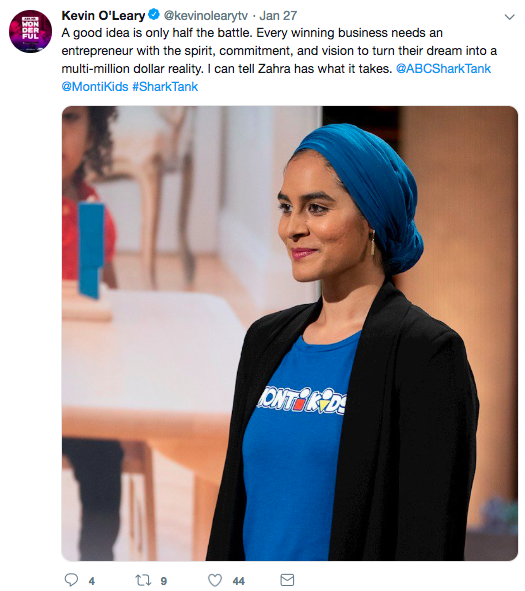
About the royalty: After having a chance to think about whether or not we really wanted to do it, I realized that he really works hard to help entrepreneurs sell and make revenue and market (the business). He’s totally incentivized with that royalty. He also sometimes does royalty deals where he doesn’t take equity, so the fact that he wanted equity and really values his equity in Monti Kids is a signal that he really believes in our long-term. I’m really happy.
Is Shark Tank anything like real fundraising?
No. I would say it’s 10 percent similar because you’re there for the same purpose. The level of intensity of Shark Tank is just way beyond what you’ll have in any regular investor meeting. Typically if investors aren’t interested or even if they have feedback, they’ll do it in a pretty gentle way. But (Shark Tank) is dramatized. It feels less like an investor meeting and probably like swimming with actual sharks. I realized afterwards that they don’t just call it “Shark Tank” because they’re business sharks; they call it that because that’s what it feels like! I would say it’s not only stressful, but it is also traumatic.
Worth it?
YES.
